Analysis of Responsibilities & Interpersonal Skills in Social Care
VerifiedAdded on 2023/03/22
|7
|622
|82
Report
AI Summary
This report details the responsibilities and interpersonal skills essential for non-direct care workers in social care settings. It outlines the roles of managers, pharmacists, and receptionists, emphasizing the skills required for each position, such as communication, problem-solving, and knowledge of medications and patient information. The report also highlights the importance of interpersonal skills like verbal and non-verbal communication for effective interaction with staff and care users, ensuring a supportive and understanding environment. This resource is valuable for understanding the multifaceted roles within social care and the importance of both professional responsibilities and interpersonal abilities.
1 out of 7

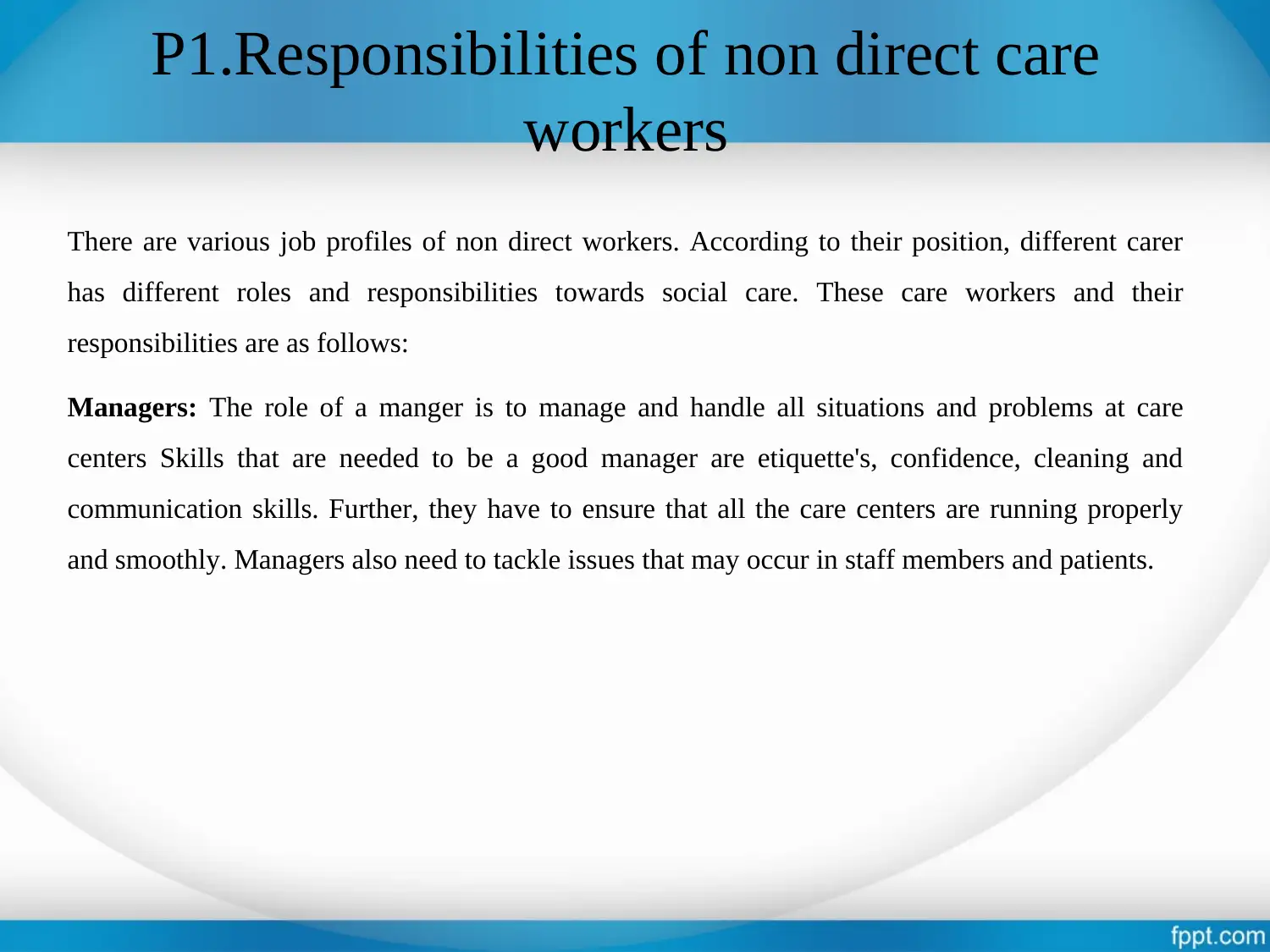
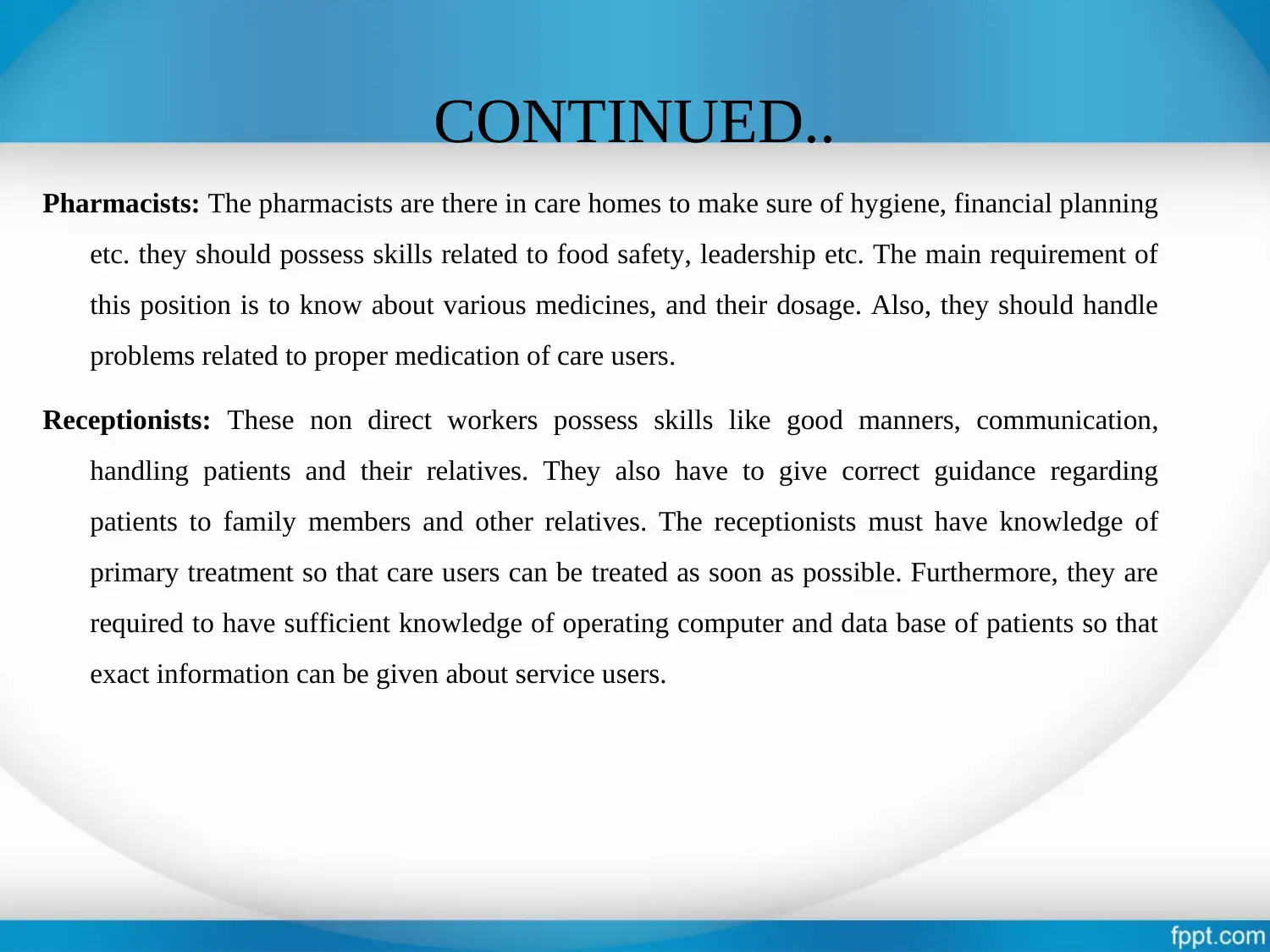

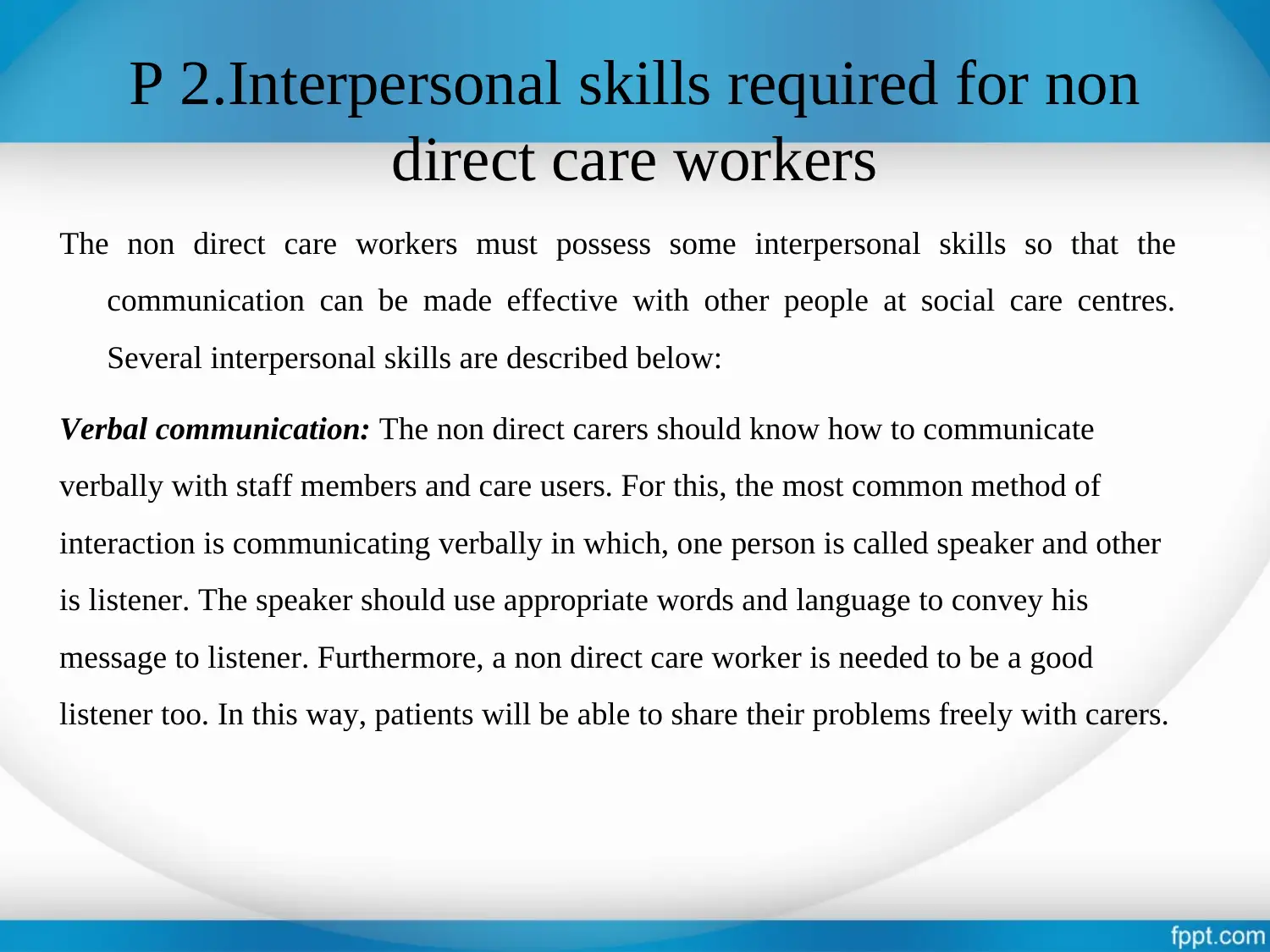
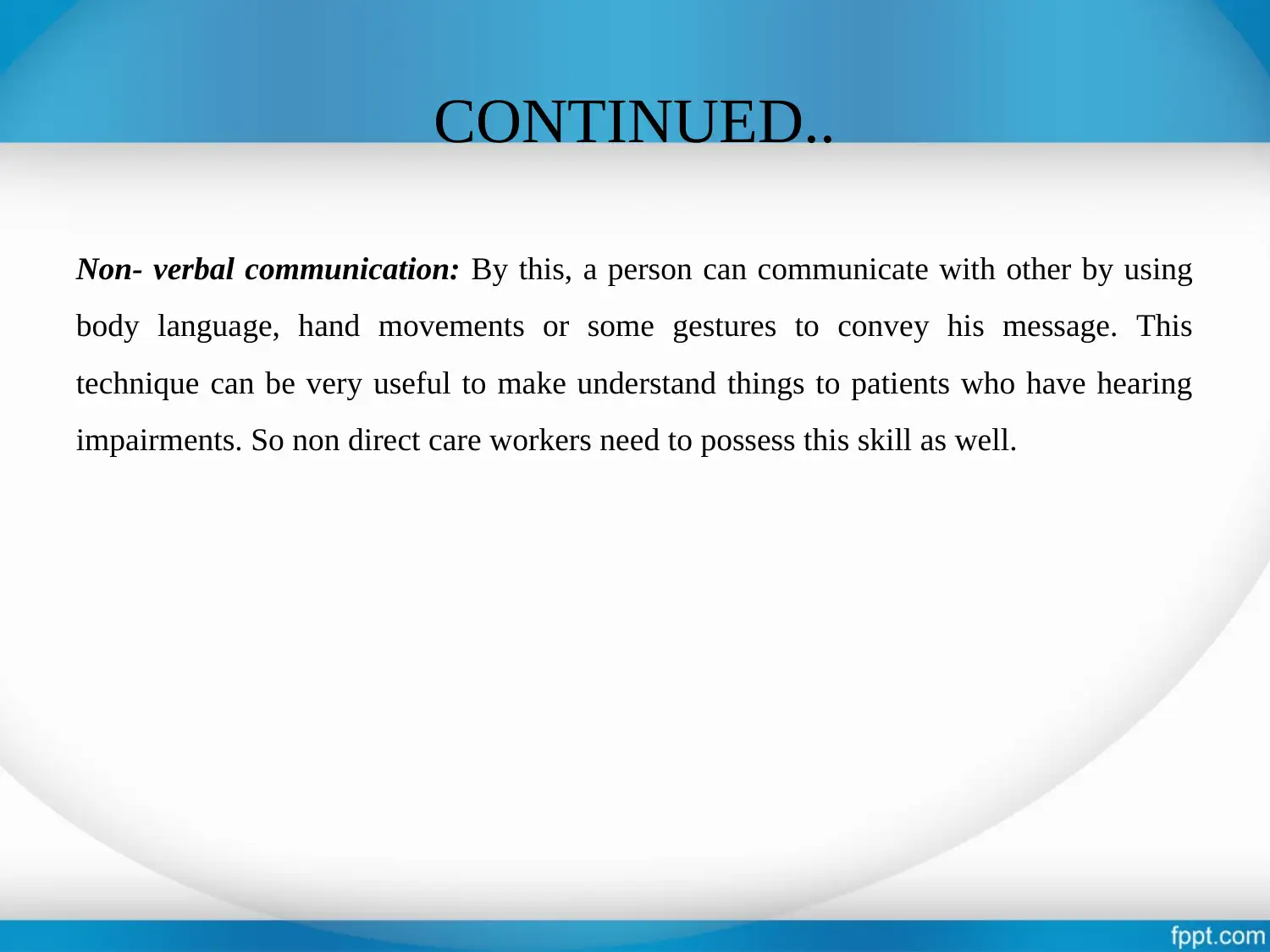
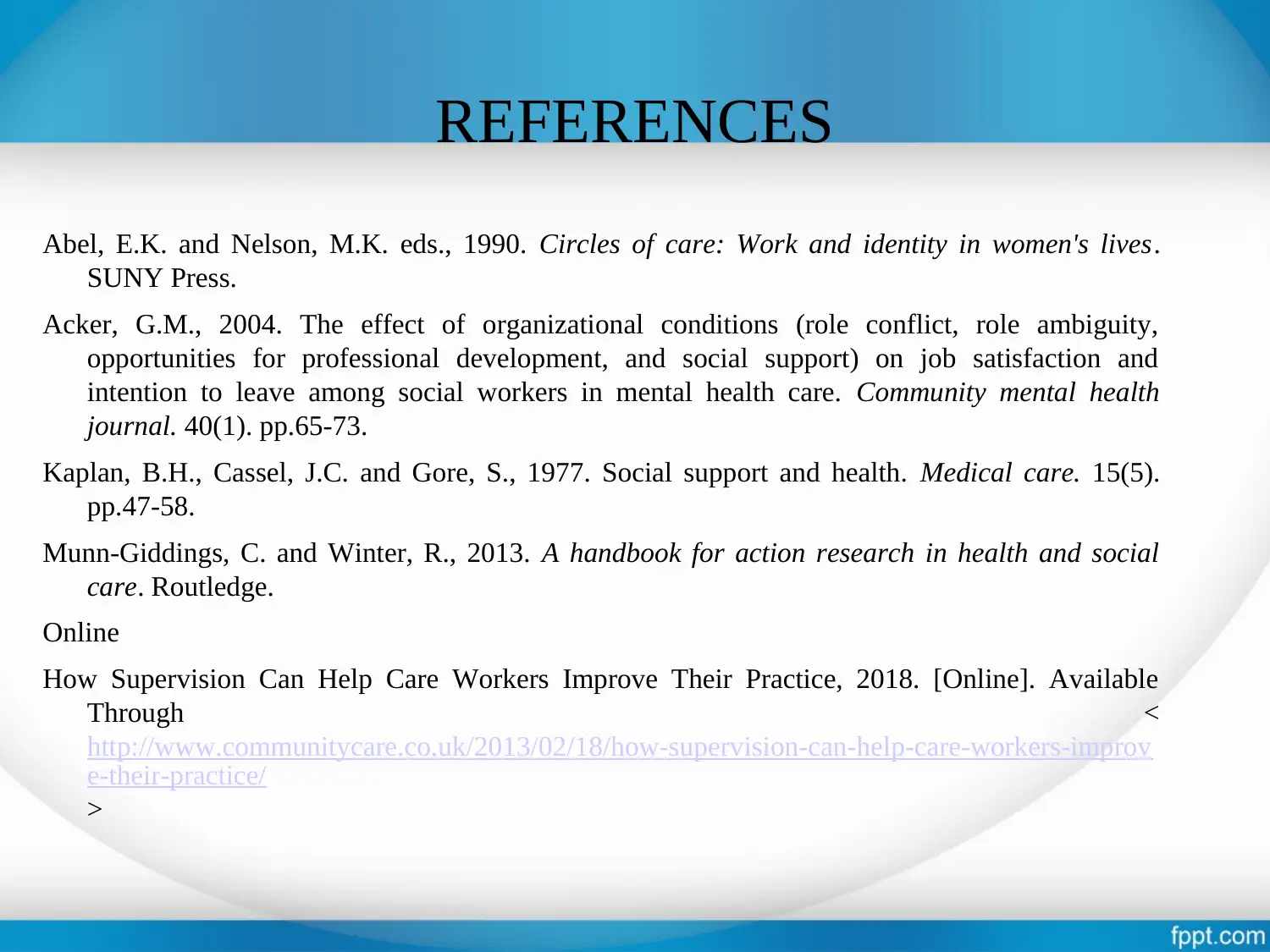







![[object Object]](/_next/static/media/star-bottom.7253800d.svg)